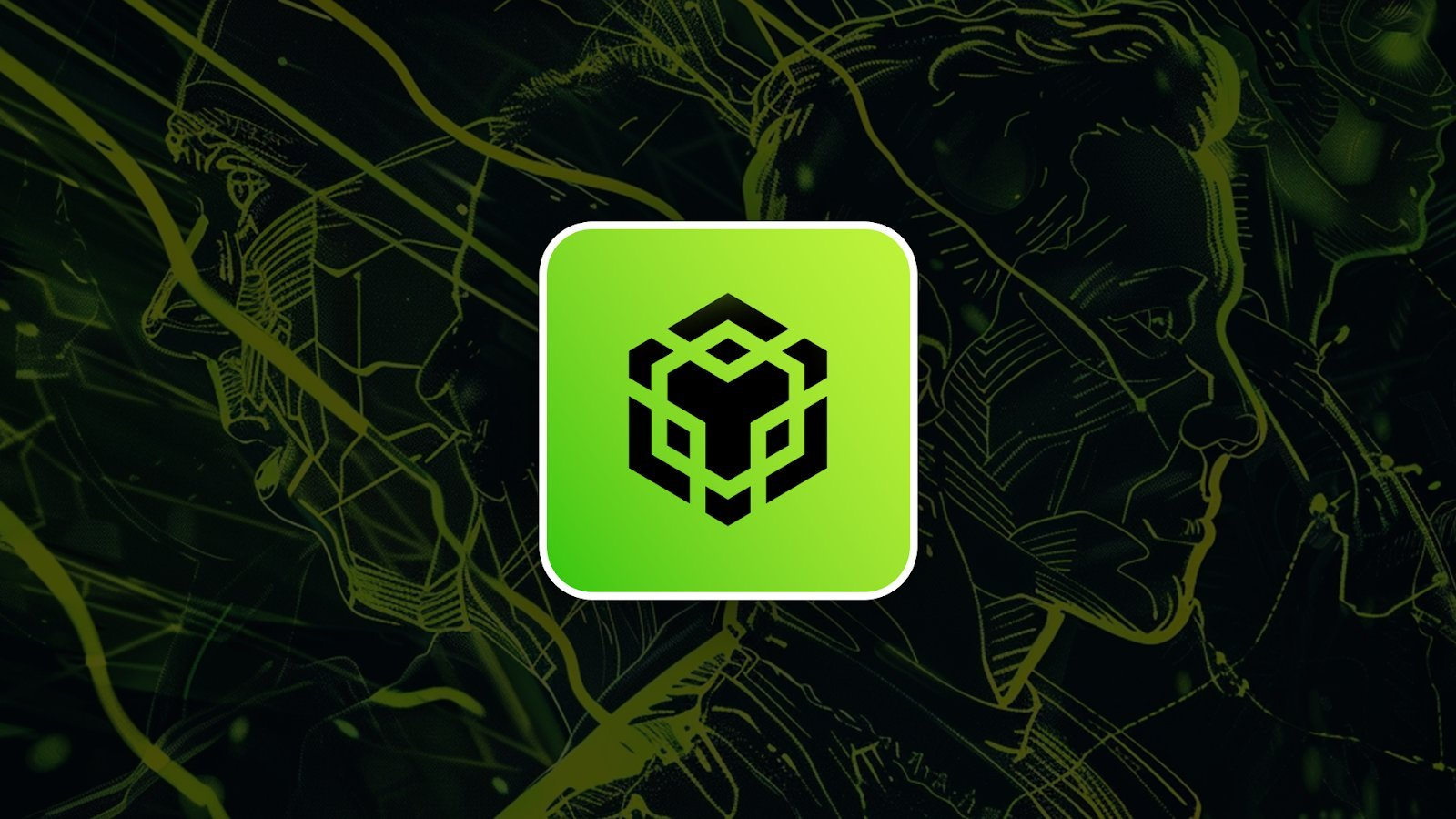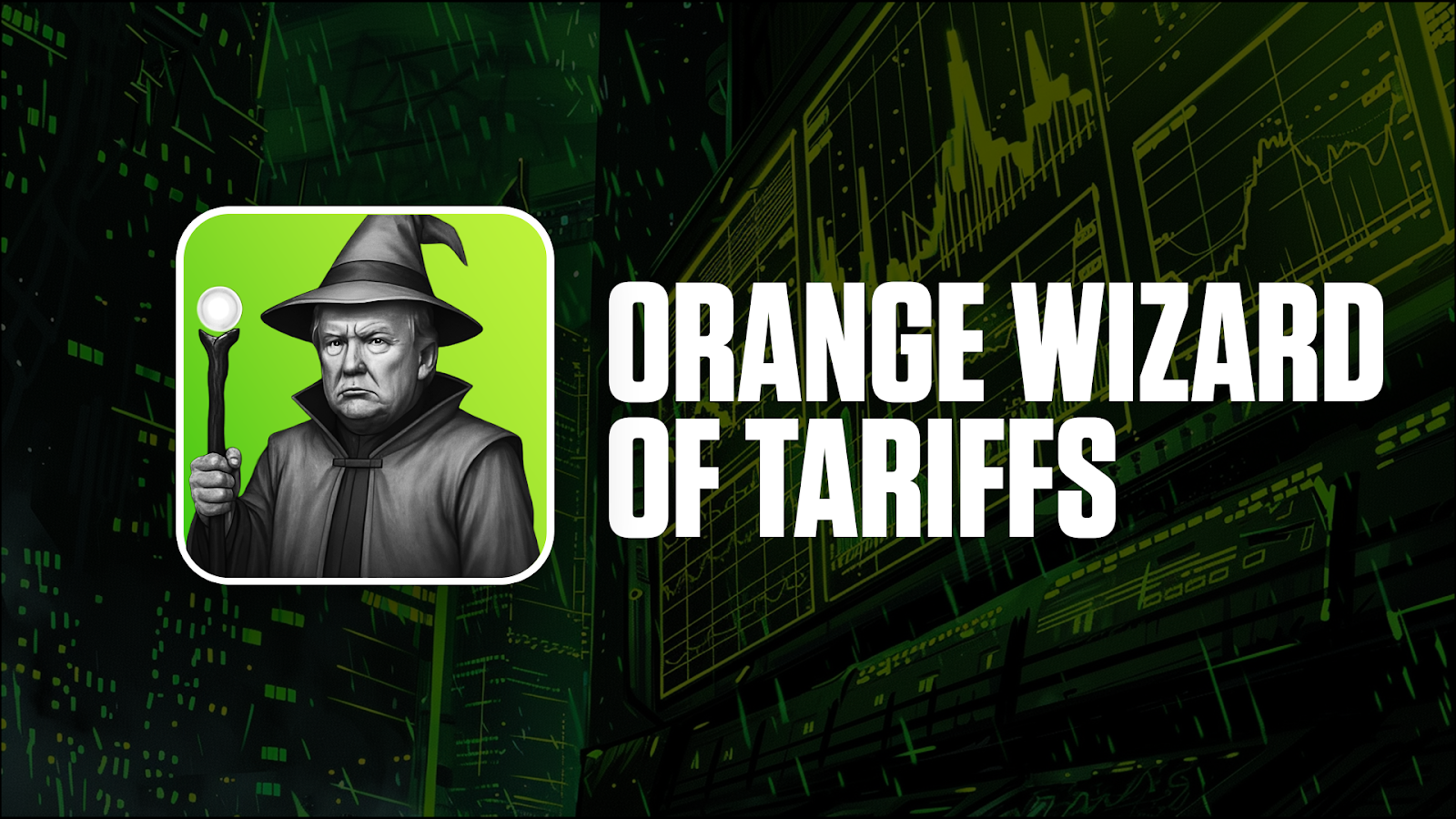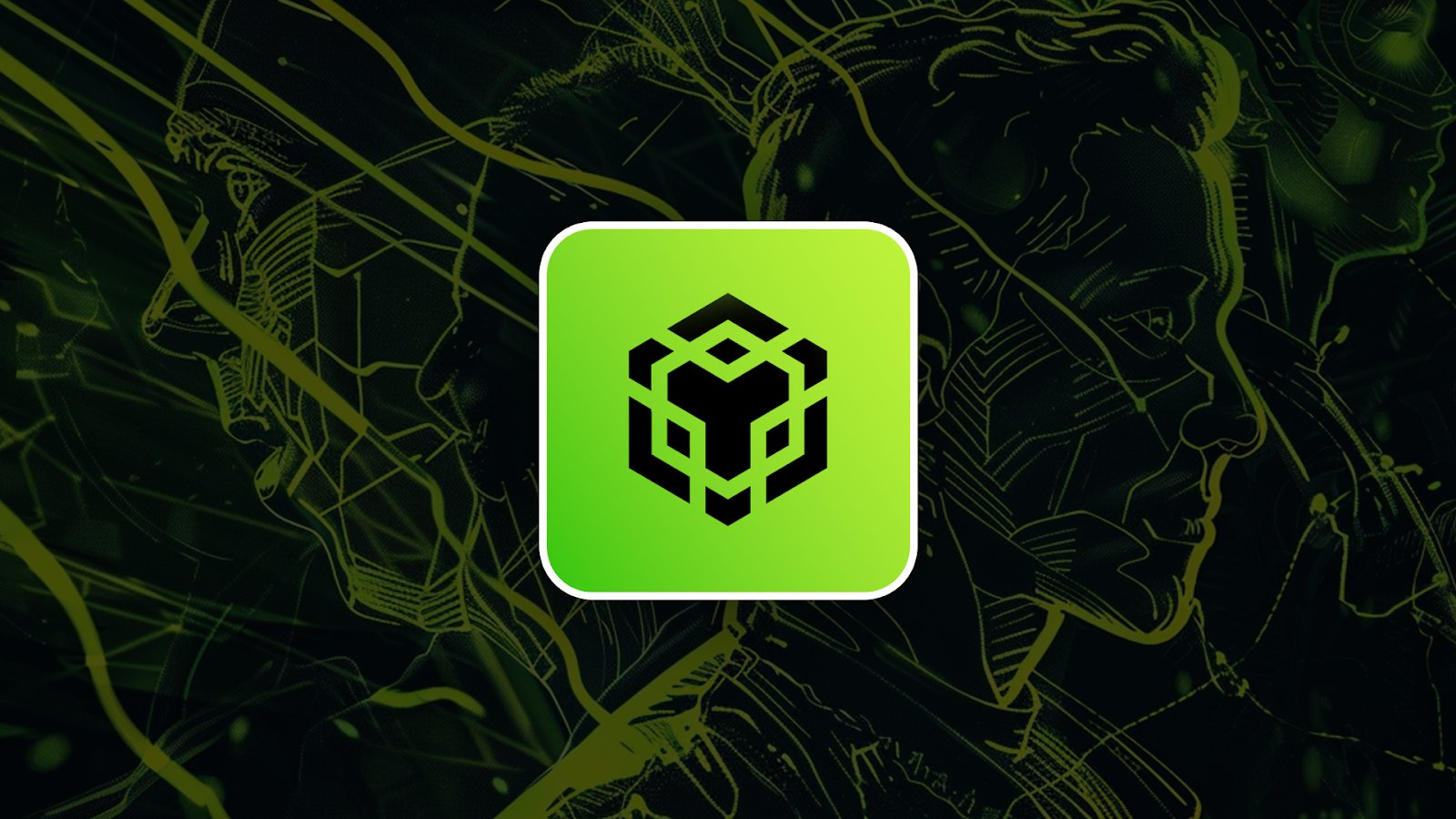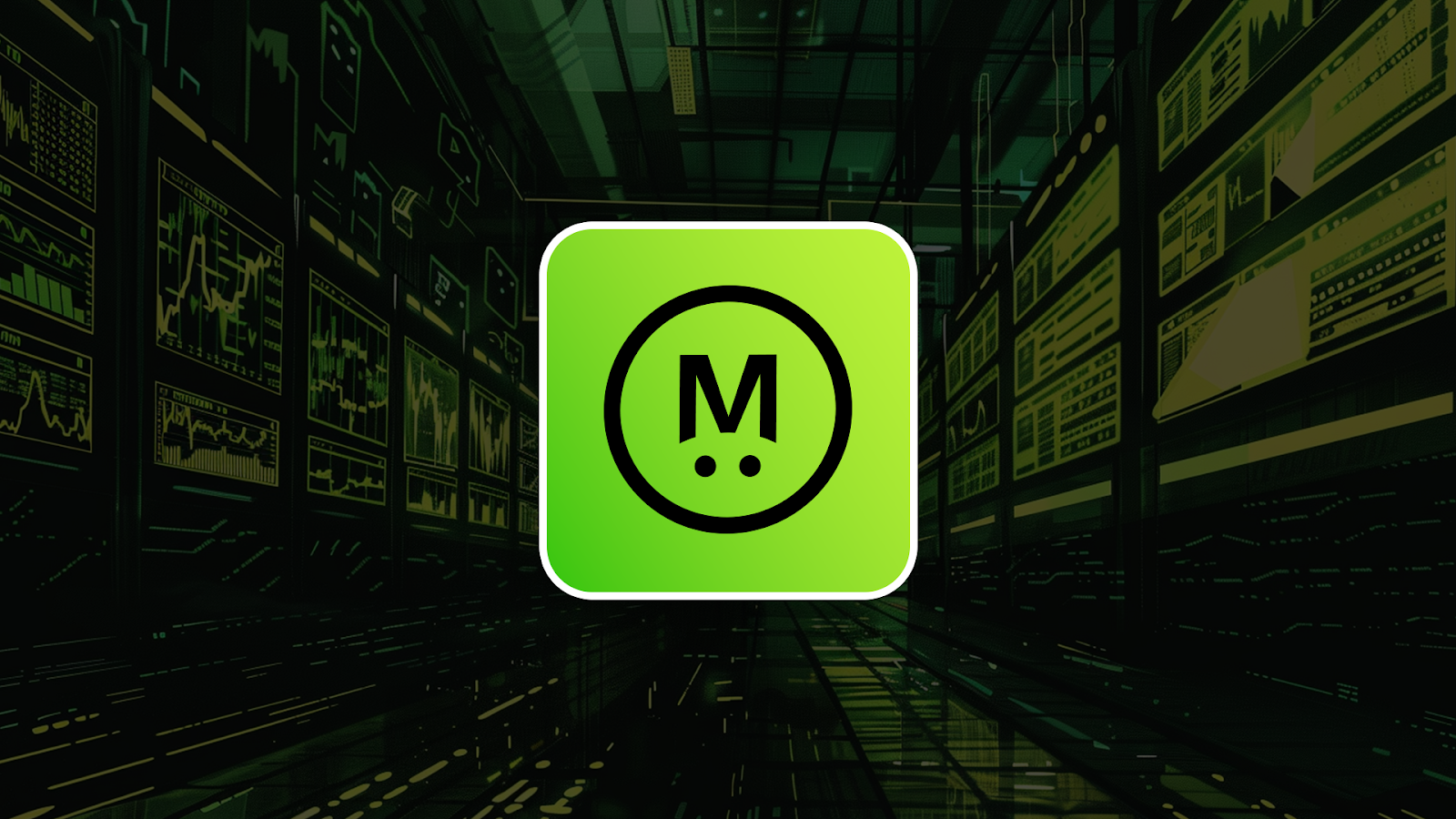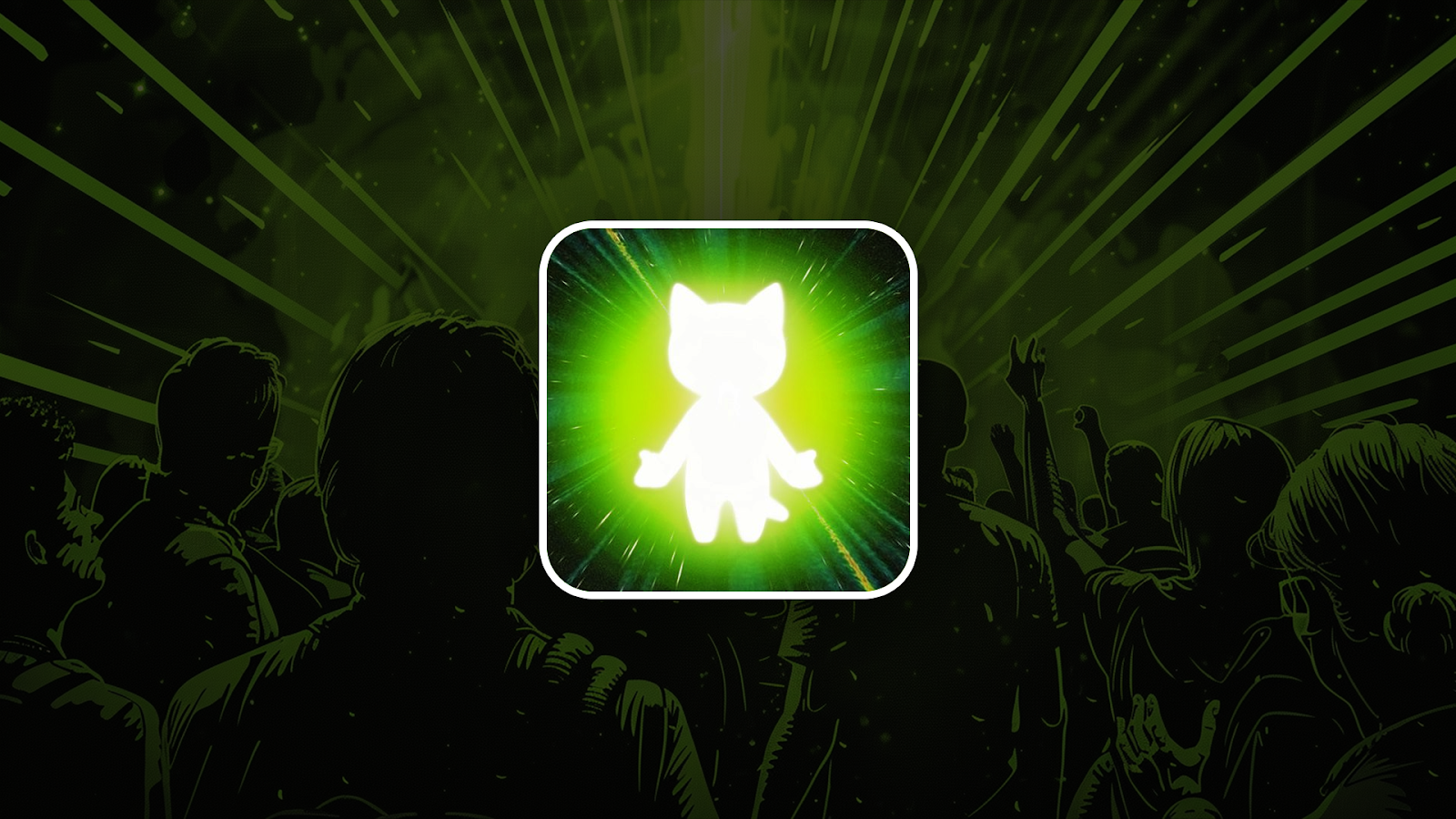Will my Altcoin bags go back to All Time Highs?
Often, when you talk to any individual involved/invested in crypto that has been around since at least 2017, there’s a common belief system you notice: “All coins will go back to their respective all-time highs”.

Psychologically, this belief is mainly derived from the Bitcoin cycles where every bear market was followed by a new bull market that drove its price to new all-time highs.
Is it a myth, a legend or is it a fact? Let’s debunk this.
We’ll use two separate routes:
- First, using statistics from previous cycles
- Second, we’ll cover the topic from a fundamentals perspective
Statistics
We’re going to look at the Top 10 coins by market capitalisation at the height of the 2013 cycle (30/11/2013 - 04/12/2013) and then track their performances through the 2017 cycle.
This is a historic snapshot of the “Top 10 MCap” list taken from 1 December 2013:
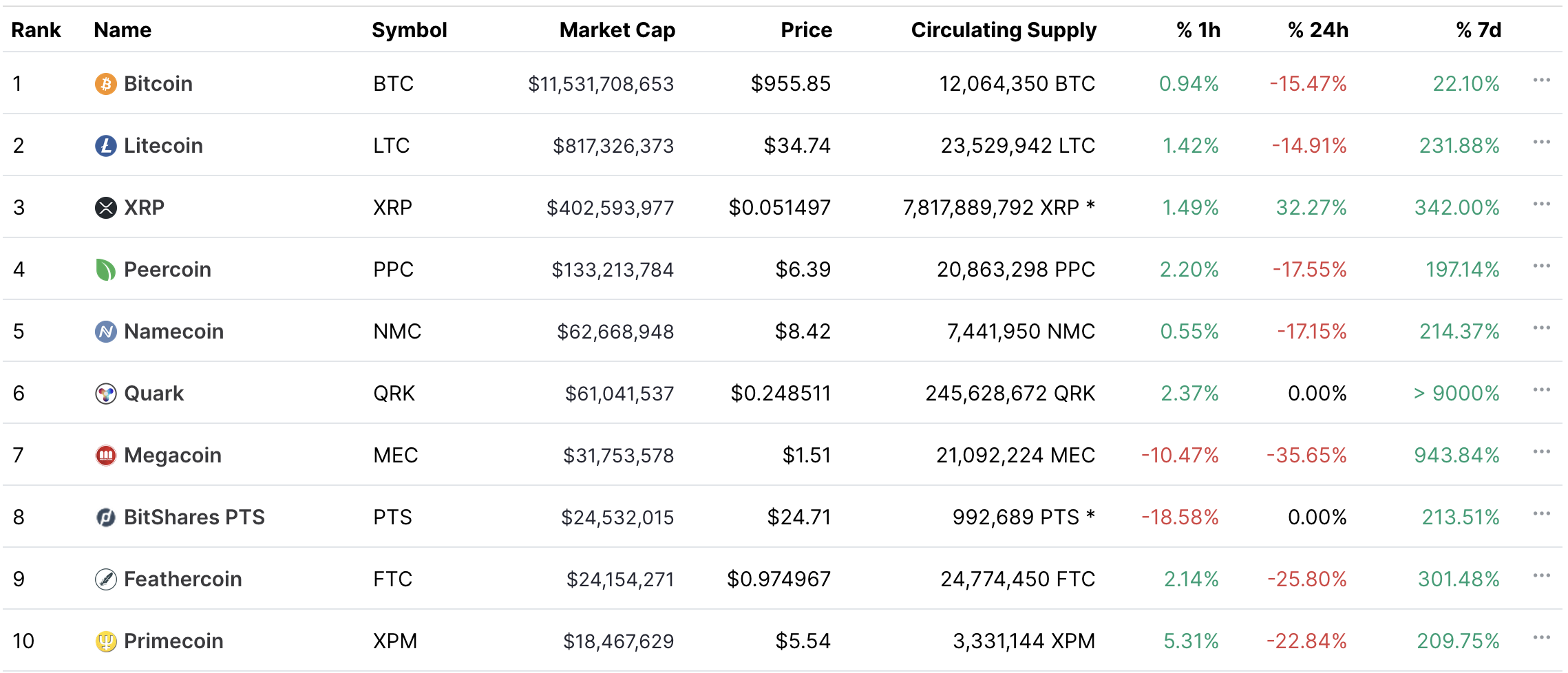
If you look at the 7 day % performances you can tell that this was a euphoric time which tends to signal the top of a market. Our topic here is Altcoins, therefore Bitcoin won’t take part of this statistical analysis. After all, Bitcoin’s performance over the years is quite famous to say the least.
Litecoin (LTC)
Sometimes dubbed the crypto-silver in the “Bitcoin is Gold” narrative, LTC survived the 2014 bear market as we all know and remained part of the Top 10 but fell from the 2nd spot to 6th.
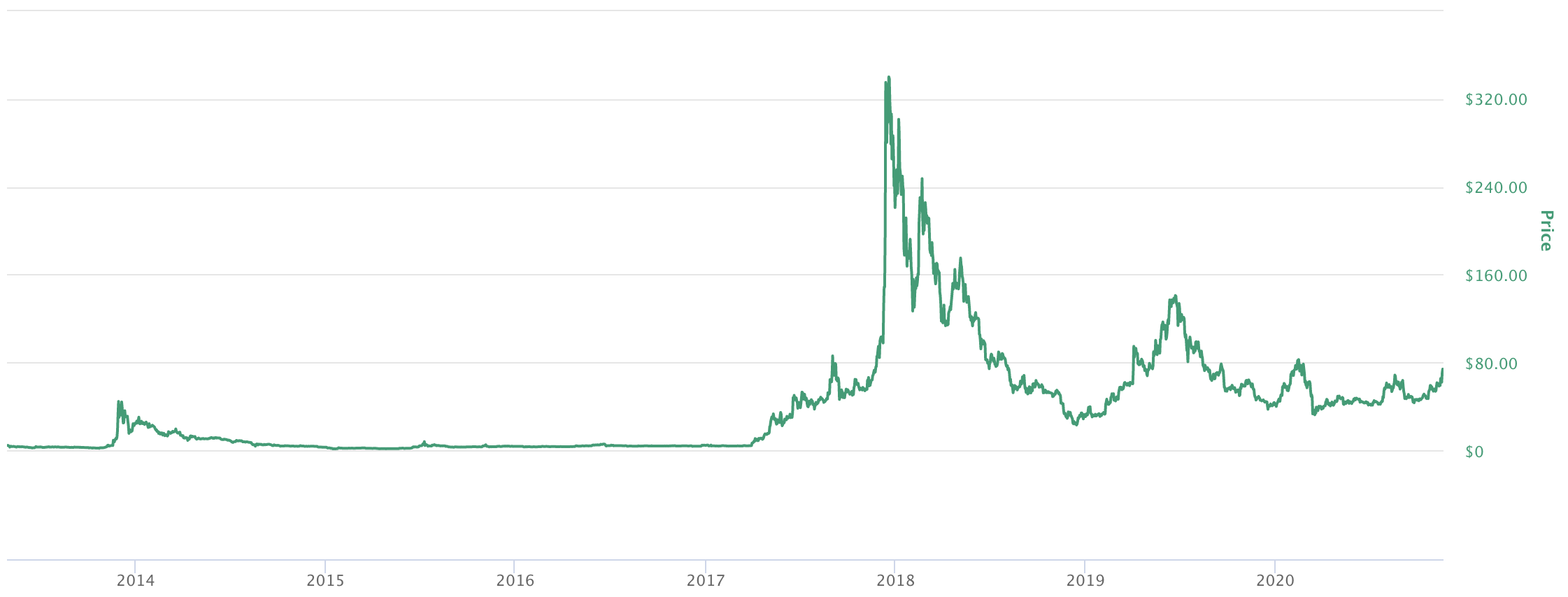
The 2013 peak around $40 is a blip compared to the 2017 cycle where price topped around $340, a 750% increase from peak to peak.
XRP
Retained 3rd largest MCap spot (if we exclude stablecoins).
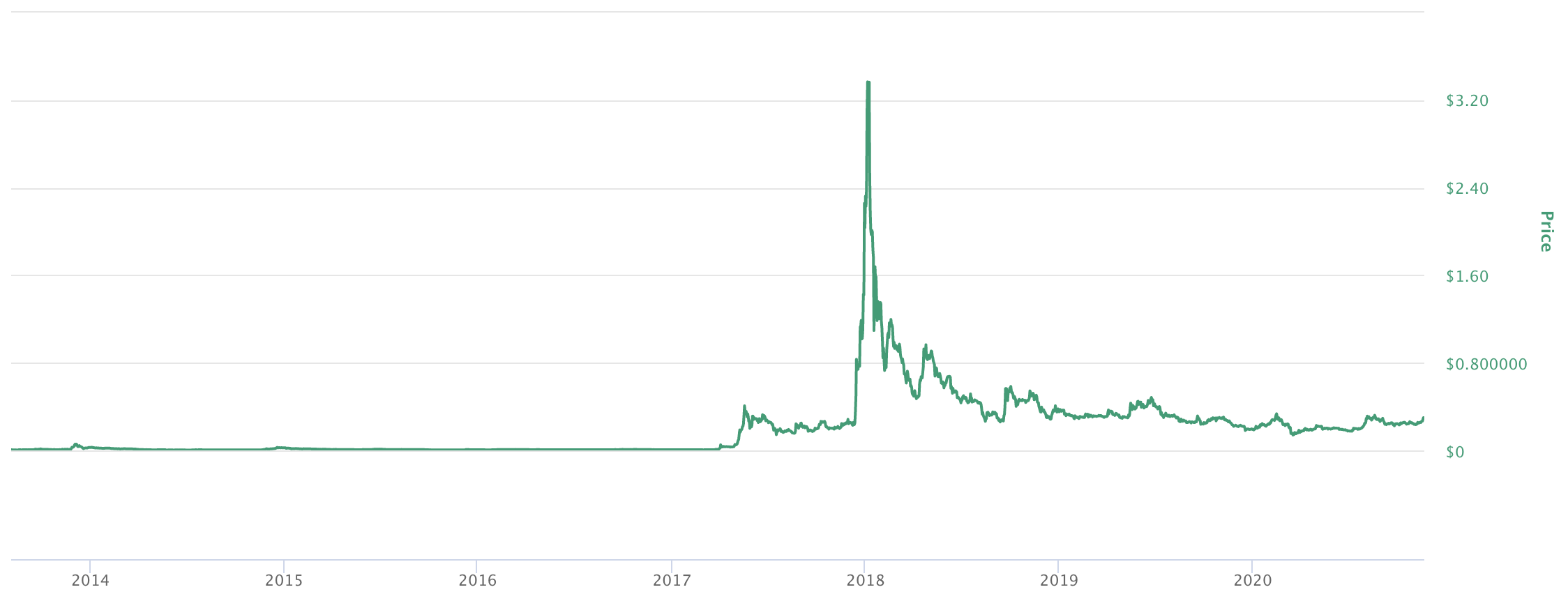
Once again, the 2013 peak of $0.057 is a very small dot compared to the 2017 high of $3.37, a 5,812% increase from peak to peak.
Peercoin (PPC)
Peercoin was the innovator behind the Proof-of-Stake (PoS) consensus algorithm that many chains have adopted or are adopting like Ethereum. Calling it useless or innovation-less would be highly unfair.
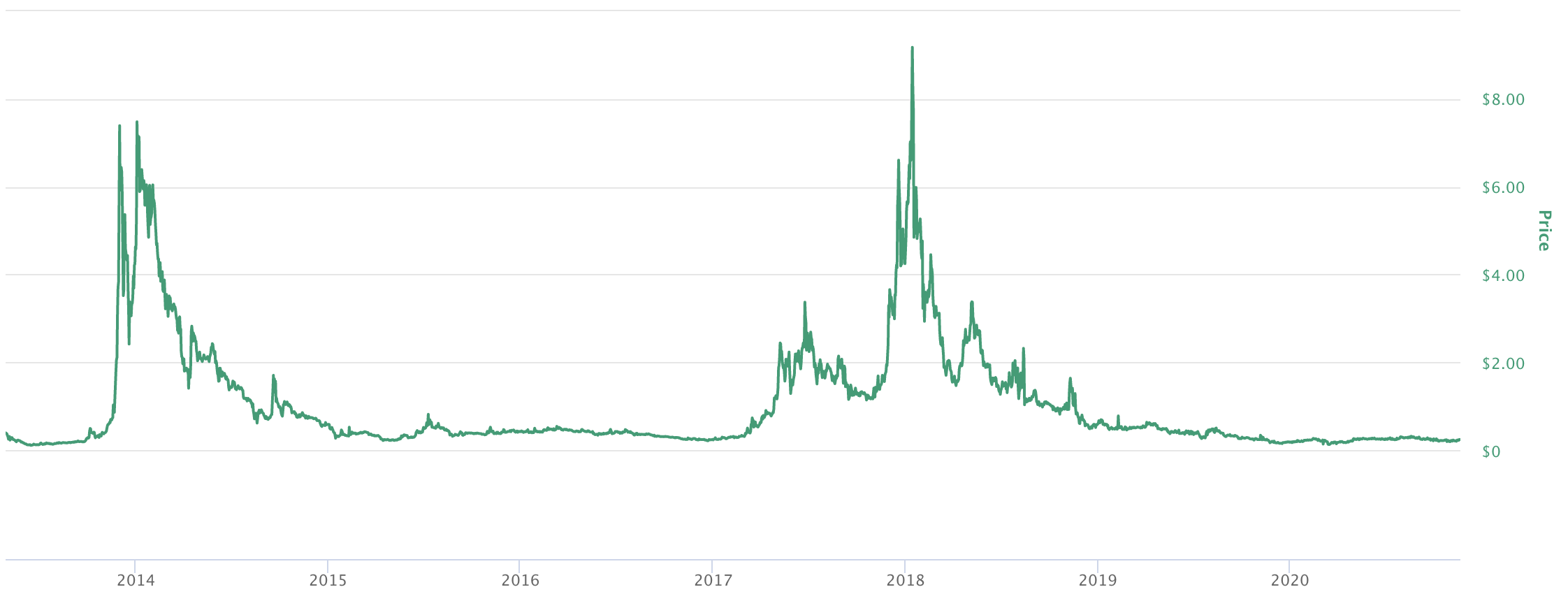
Its 2013 peak was $7.5 while its 2017 peak was $9.18, a 22.5% increase from peak to peak which is very insignificant in the wild world of cryptocurrencies. Today, PPC is ranked 695 by market capitalisation.
Namecoin (NMC)
This network was forked from the Bitcoin code and had the additional capability of storing data within its blocks.
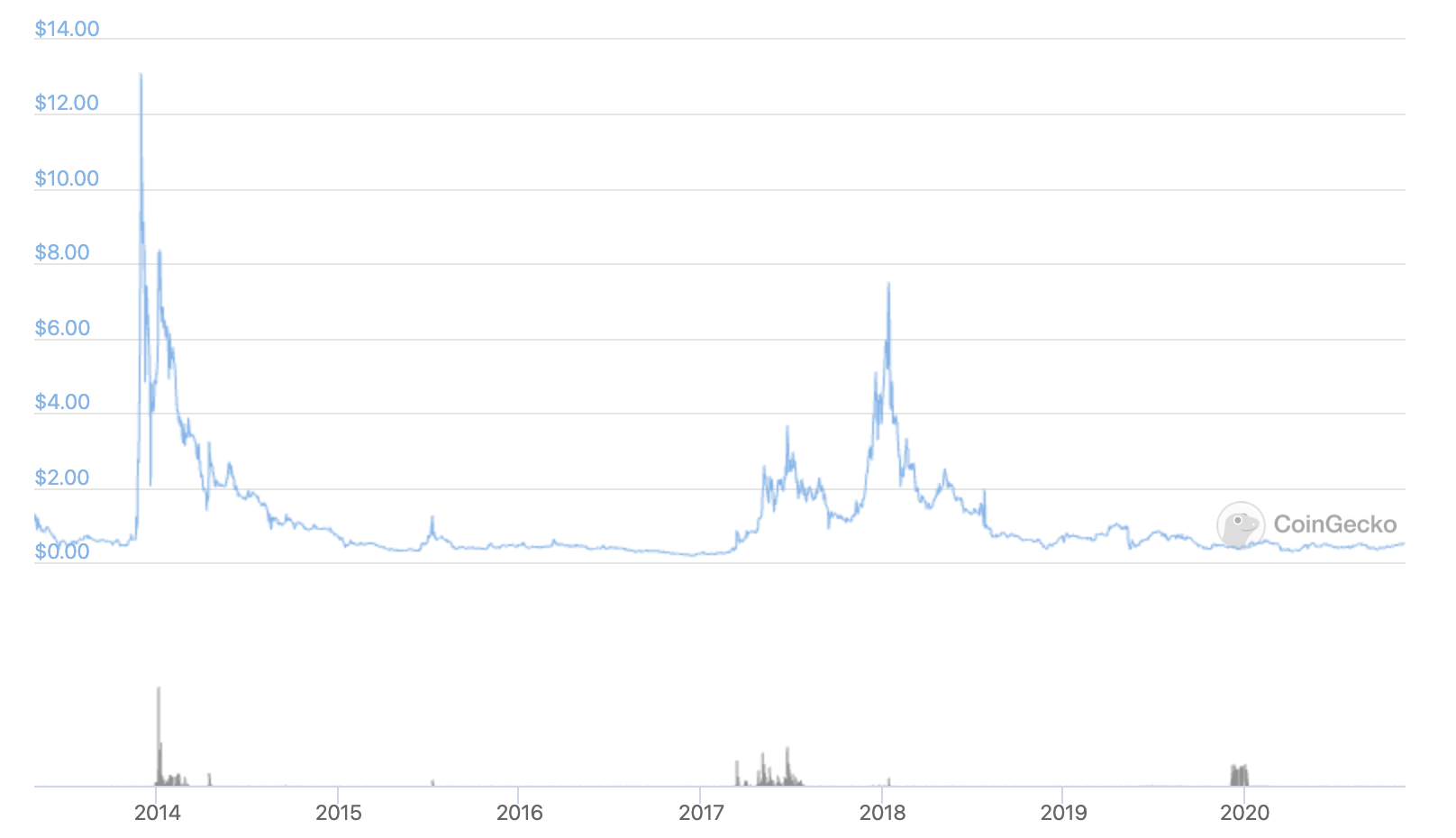
Its price peaked at $13 in the 2013 cycle and $7.5 in the 2017 one, a -50% decrease from peak to peak. That means anyone who “held a bag” from the euphoric part of the 2013 cycle, never broke-even let alone realised any profit.
Quark (QRK)
QRK is one of the many cryptocurrencies to come out as the payments system for online transactions.
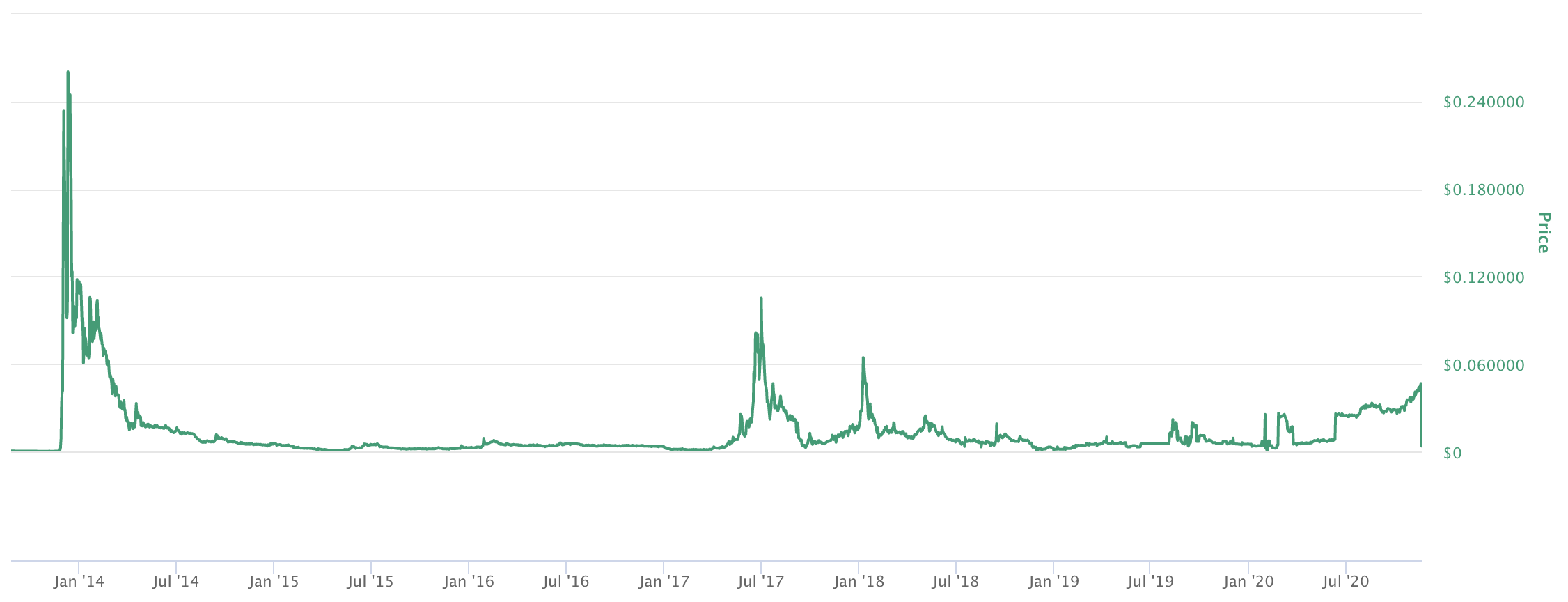
2013 price peaked at $0.26 while the 2017 bubble peak barely got it to $0.10, a -61.5% decrease from peak to peak.
Megacoin (MEC)
Dubbing itself as “a new type of decentralised currency”, Megacoin is one of the mega-fails which now sits at ranking 1526 in MCap.
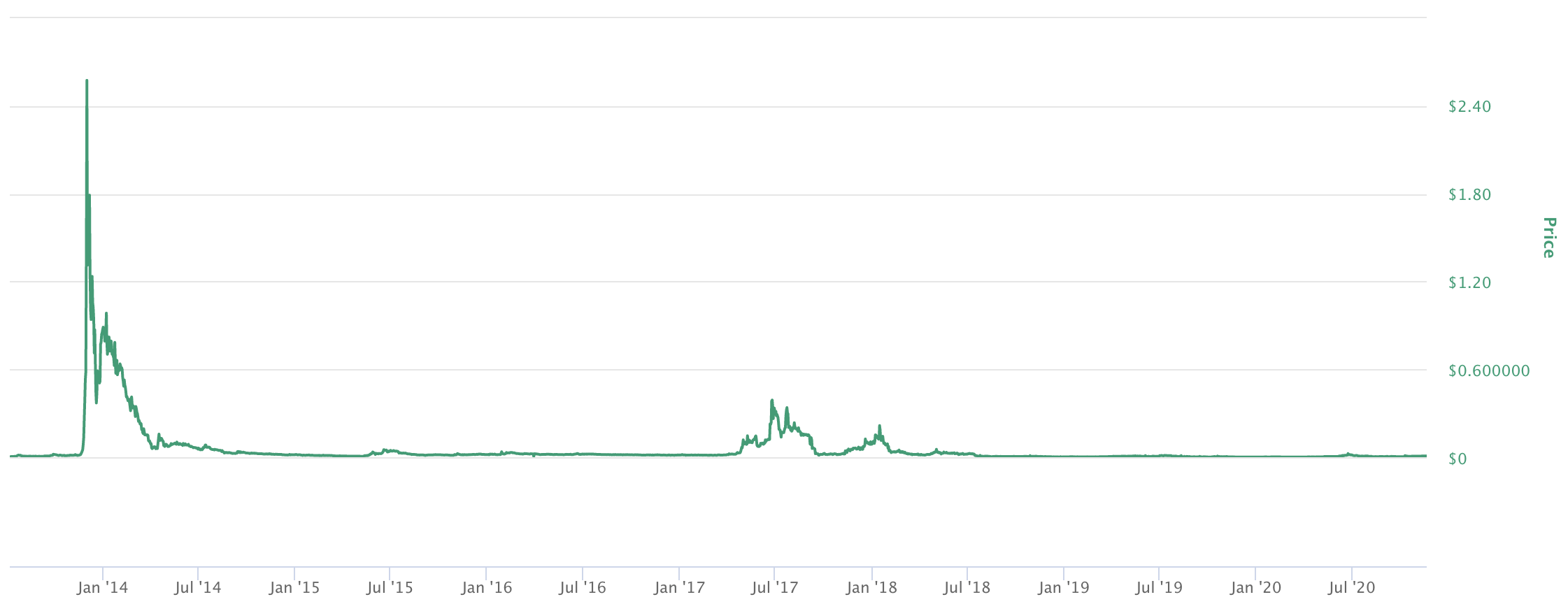
The 2017 peak of $0.39 is a blip compared to the 2013 peak of $2.58, a -85% decrease from peak to peak.
BitShares PTS (PTS)
The team behind this was fast enough to capitalise on the 2013 bubble before outright scamming people and selling all their coins, that seems to be the story that the chart tells. From old reddit posts, we’ve found that they called themselves a DAC (Decentralised Autonomous Company).
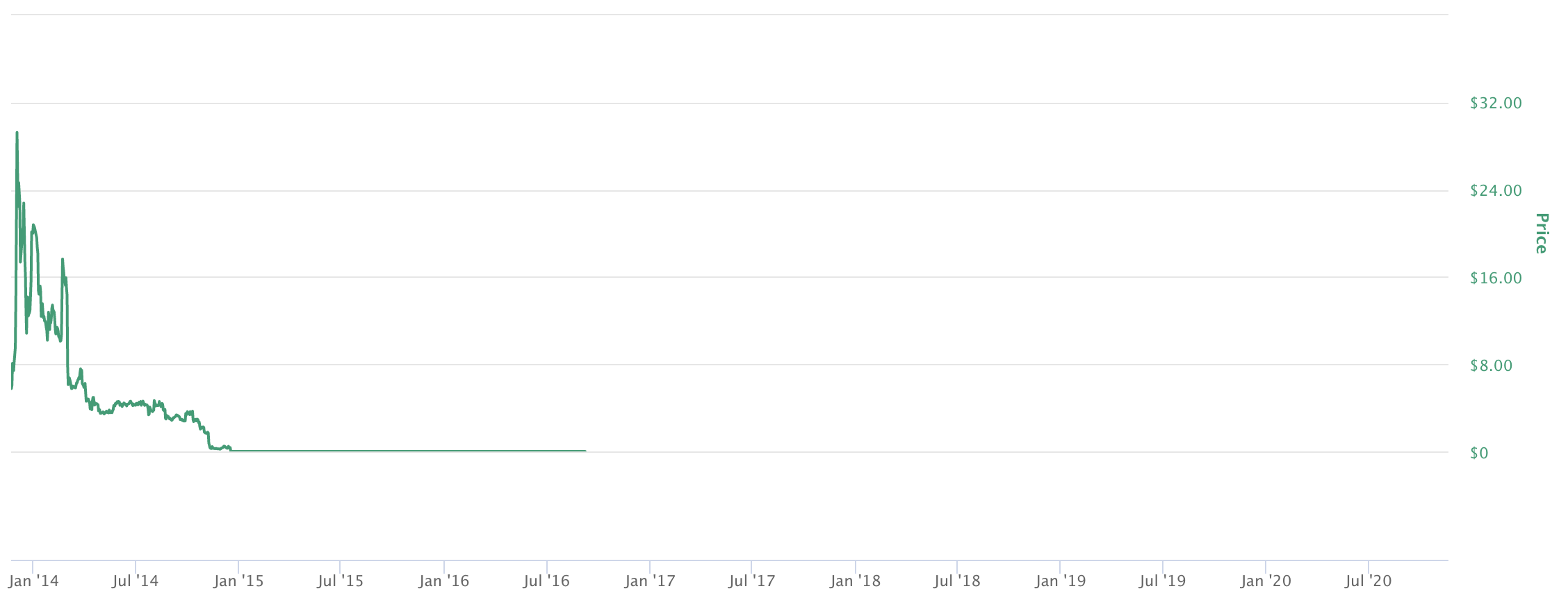
PTS’ price did rally by about 300% but then experienced ultimate death and extinction, basically a -100% decrease from peak to peak.
Feathercoin (FTC)
Promoted as user friendly, secure, having low fees and fast settlement, FTC today is ranked 747th in the MCap list.
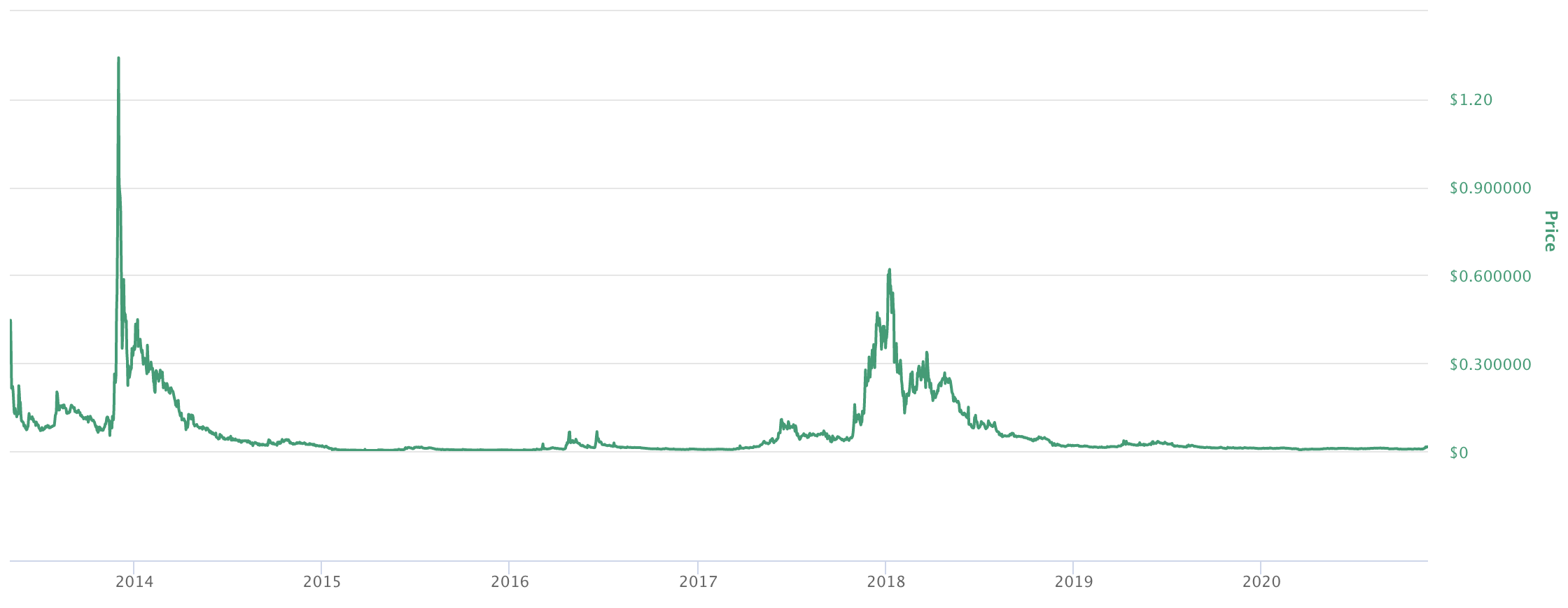
Price peaked at $1.34 in 2013 and $0.615 in 2017, a -54% decrease from peak to peak.
Primecoin (XPM)
Marketed as an “innovative cryptocurrency”, XPM now sits at 1053rd in the MCap list with less than $10k in daily trading volume.
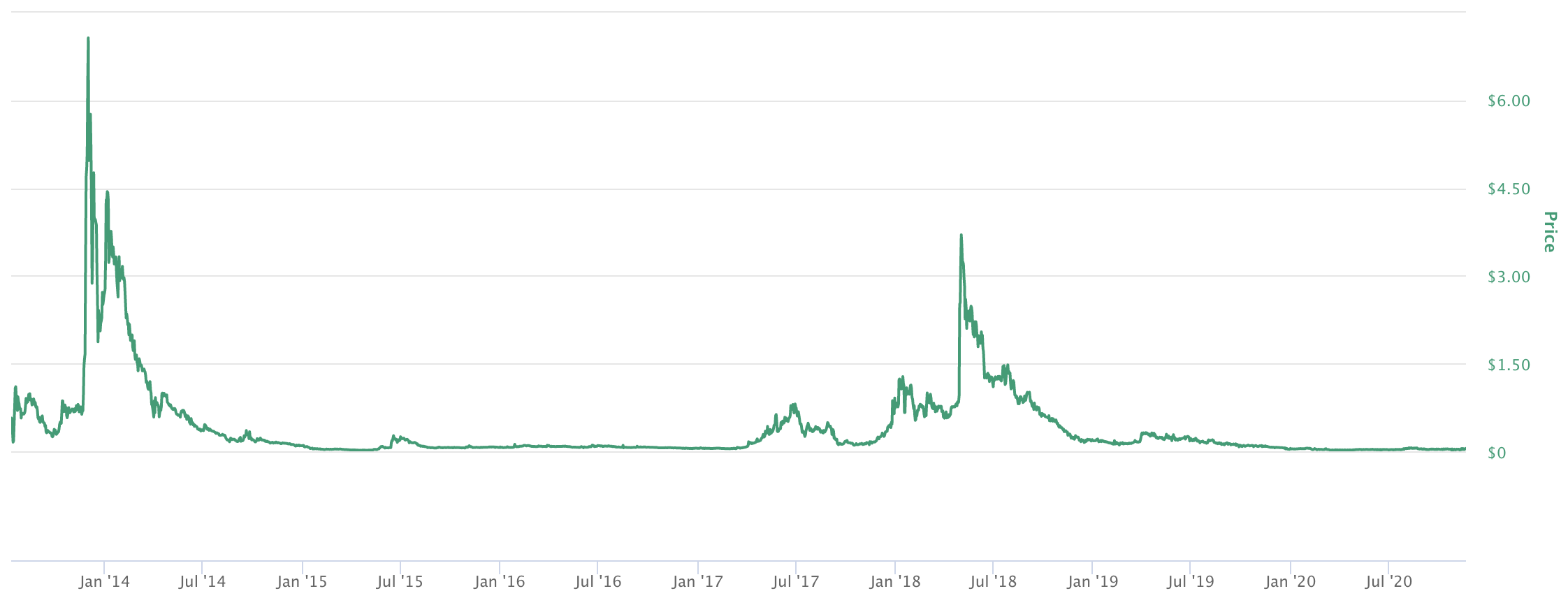
Price peaked at $7.07 in 2013 and $3.70 in 2017, a -48% decrease from peak to peak.
Stats Summary
|
Top MCap Coins (2013 cycle) |
2013 Peak |
2017 Peak |
Peak to Peak Increase/Decrease |
|
Litecoin (LTC) |
$40 |
$340 |
750% |
|
XRP |
$0.057 |
$3.37 |
5,812% |
|
Peercoin (PPC) |
$7.50 |
$9.18 |
22.50% |
|
Namecoin (NMC) |
$13 |
$7.50 |
-50% |
|
Quark (QRK) |
$0.26 |
$0.10 |
-62.50% |
|
Megacoin (MEC) |
$2.58 |
$0.39 |
-85% |
|
BitShares PTS (PTS) |
$30 |
$0 |
-100% |
|
Feathercoin (FTC) |
$1.34 |
$0.615 |
-54% |
|
Primecoin (XPM) |
$7.07 |
$3.70 |
-48% |
Fundamentals
Let’s be frank and very openly honest: ~90% of this market is made up of scams or incompetent projects.
Bubbles happened as a result of Bitcoin’s meteoric rises and the saying “a rising tide lifts all boats” applies here.
Most of these coins have pumped on “nothingness”, no fundamental reason or actual usage behind them with a good economic model. They pumped from speculation.
Speculators come in two forms: those that anticipate and those that chase. Those that anticipate are people refer to as “smart money”, they place bets and await for some herd to lift prices. Those that chase are referred to as “dumb money” who buy near the top and are too greedy to sell. They end up holding a bag, either dumping at the bottom from hopelessness or awaiting some sort of increase to sell which represents a lot of selling pressure.
Given the uselessness and selling pressure, these coins never make it back to ATHs and fail miserably (as they should).
2013 vs 2017
We’d love to say the market is getting smarter as time goes by, but it would not be an honest answer. The greed is the same, the bubbles are the same and the results also look like they’re about to be the same.
The difference between cycles is mainly the marketing if we are being frank. 2013 saw Bitcoin’s first attempt at 4 figures, it was a model for success. New projects tried to capitalise by creating “the new and better Bitcoin” and adding the term “coin” at the end of their name gave them some sort of credibility back then.
In 2017, the marketing came as “speed” and “scalability” with new blockchains and smart contracts mimicking Ethereum.
2017 vs Now
This is the Top 10 MCap list near the 2017 top
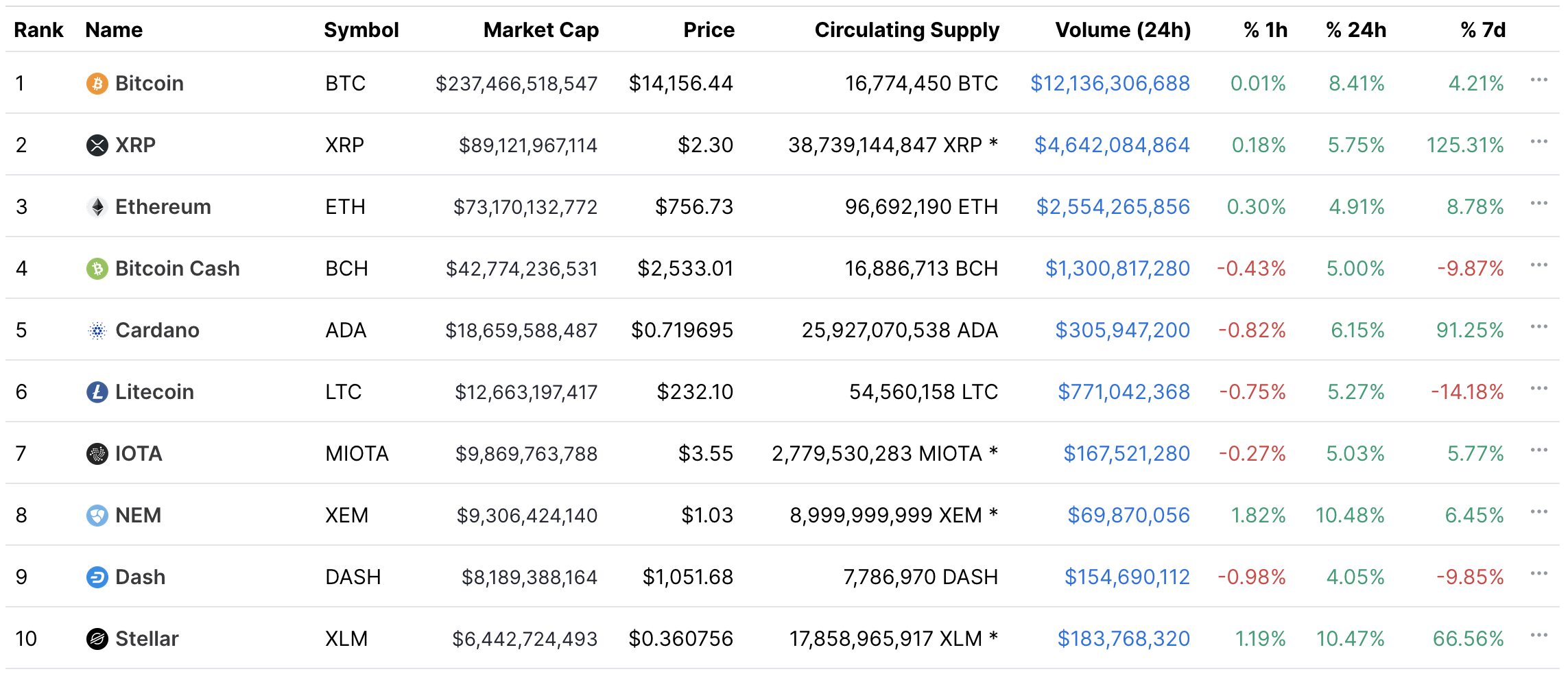
And this is the current Top 10
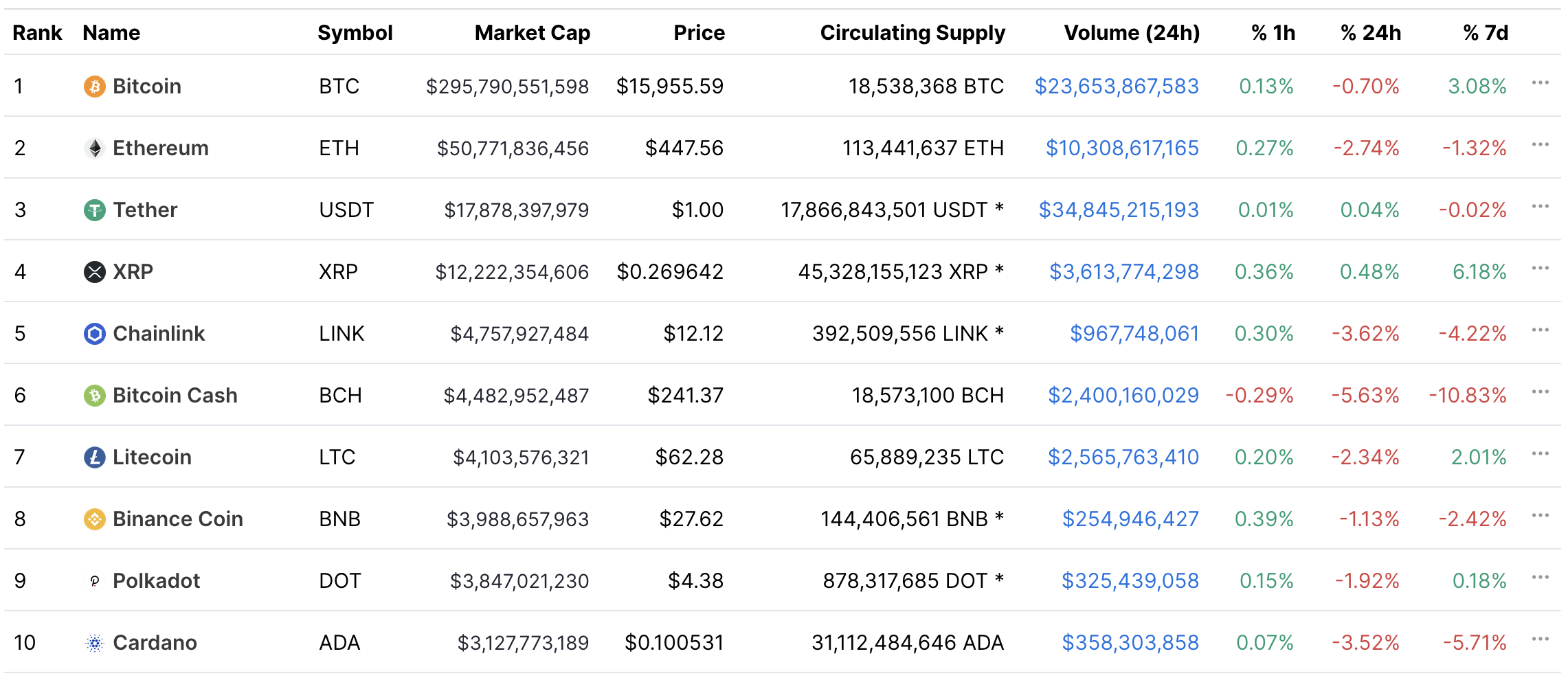
A good portion of them is either falling down the list or is already completely out of it.
Do you see the pattern? We do.
We have a theory, a well researched theory as to which new coins will make up the Top 10 list in the new cycle. There's yet again a marketing switch between 2017 and 2020, additionally some new low/mid-cap projects are working hard and delivering actual products (unlike the ICO era which was filled with roadmap promises). These would be coins that can cement a place throughout multiple cycles in the Top 10 list.
We're going to discuss our theory in the next few days in Discord Pro, where there's an existing channel for members to directly ask us questions and create an open conversation.
100% Success Money Back Guarantee
If our approach doesn’t outperform the overall crypto market during your subscription, we’ll give you a full refund of your membership. No questions asked. For quarterly and monthly subscribers this is applicable once your subscription runs for 6 consecutive months.
Take your next step towards crypto success
$799/year
Get everything you need to actively manage your portfolio and stay ahead. Ideal for investors seeking regular guidance and access to tools that help make informed decisions.
For your security, all orders are processed on a secured server.
What’s included in Pro:
Success Guarantee, if we don’t outperform the market, you get 100% back, no questions asked
24/7 access to experts with 50+ years’ experience
All of our top token picks for 2025
Our latest memecoins pick with 50X potential
On hand technical analysis on any token of your choice
Weekly livestreams & ask us anything with the team
Daily insights on Macro, Mechanics, and On-chain
Curated list of top upcoming airdrops (free money)
Our track record speaks for itself
With over 2.4M tokens and widespread misinformation in crypto, we cut
through the noise and consistently find winning assets.
Frequently Asked Questions
Can I trust Cryptonary's calls?
Yes. We've consistently identified winners across multiple cycles. Bitcoin under $1,000, Ethereum under $70, Solana under $10, WIF from $0.003 to $5, PopCat from $0.004 to $2, SPX blasting past $1.70, and our latest pick has already 200X'd since June 2025. Everything is timestamped and public record.
Do I need to be an experienced trader or investor to benefit?
No. When we founded Cryptonary in 2017 the market was new to everyone. We intentionally created content that was easy to understand and actionable. That foundational principle is the crux of Cryptonary. Taking complex ideas and opportunities and presenting them in a way a 10 year old could understand.
What makes Cryptonary different from free crypto content on YouTube or Twitter?
Signal vs noise. We filter out 99.9% of garbage projects, provide data backed analysis, and have a proven track record of finding winners. Not to mention since Cryptonary's inception in 2017 we have never taken investment, sponsorship or partnership. Compare this to pretty much everyone else, no track record, and a long list of partnerships that cloud judgements.
Why is there no trial or refund policy?
We share highly sensitive, time-critical research. Once it's out, it can't be "returned." That's why membership is annual only. Crypto success takes time and commitment. If someone is not willing to invest 12 months into their future, there is no place for them at Cryptonary.
Do I get direct access to the Cryptonary team?
Yes. You will have 24/7 to the team that bought you BTC at $1,000, ETH at $70, and SOL at $10. Through our community chats, live Q&As, and member only channels, you can ask questions and interact directly with the team. Our team has over 50 years of combined experience which you can tap into every single day.
How often is content updated?
Daily. We provide real-time updates, weekly reports, emergency alerts, and live Q&As when the markets move fast. In crypto, the market moves fast, in Cryptonary, we move faster.
How does the success guarantee work?
If our approach to the market doesn’t beat the overall crypto market during your subscription, we’ll give you a full refund of your membership fee. No questions asked. For quarterly and monthly subscribers this is applicable once your subscription runs for 6 consecutive months.














